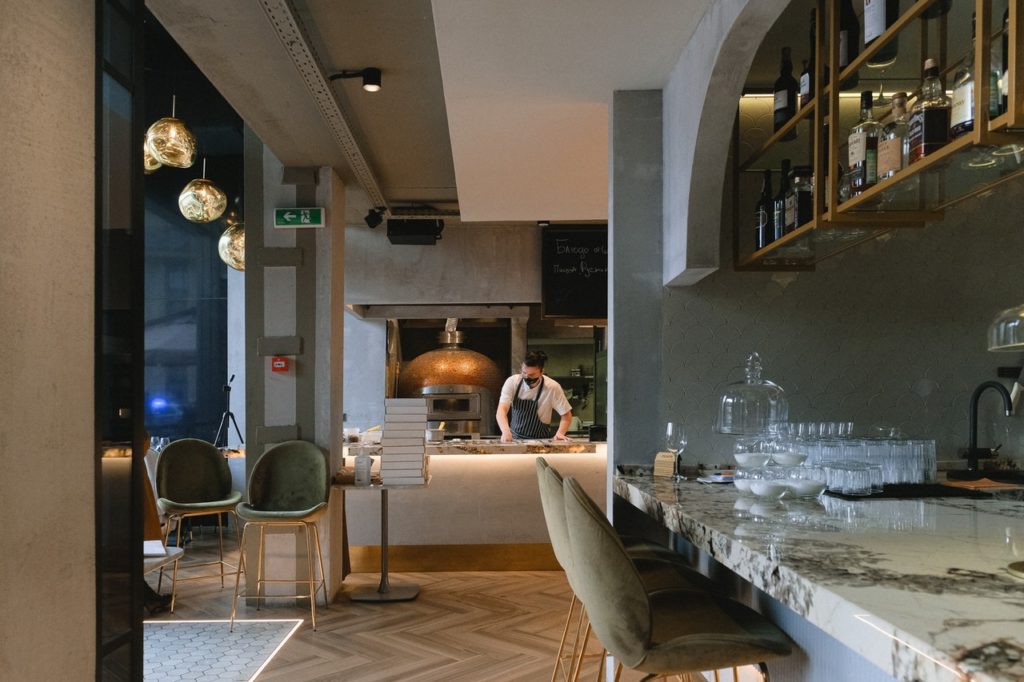Knowing how to manage cash flow is crucial for a business’s health and well-being, and restaurants usually get a bad reputation due to their volatile nature. Plus, there’s a high failure rate in the niche, with two out of three restaurants close in the initial year.
That said, here are seven tips to help you manage your restaurants’ finances to keep the cashflow going.
Control Food Costs
Food expenses account for a significant part of your overall restaurant expenses, and though these are usually fixed, and you can’t really put a dent on them—you can keep them in control. Wastage is the primary reason for high food costs in any restaurant. That’s why keeping up with proper stock and inventory management is vital in controlling costs. You’ll also need to consider optimizing your menu and recipes to ensure you don’t have anything you’re wasting your money on.
For instance, if you’re looking to add more ‘heft’ to your dishes, instead of adding more to the dish and making it too expensive, using alternatives like micellar casein protein, a protein that makes dishes more filling having added nutrition is ideal.
Budget Expenses
Besides the food costs, you’ll also need to consider budgeting for other expenses such as employee wages, maintenance expenses, and overall operating costs. Budgeting helps you know your total fixed costs, working expenses, and how much money you’ll have and accounts for how much your restaurant can make. Plus, it prevents any confusion and lets you keep steady track of expenses going in and out of your business. In essence, budgeting won’t just tell you what your liabilities and assets are, but it will also show you what you should prioritize.
Maintain a Cash Flow Statement
A cash flow statement can tell you how your daily operations impact the amount of money and cash equivalents you currently have in your restaurant, informing you accurately how much you have in hand, how much is going and coming. The statement often acts as the ‘mirror’ of how your restaurant will be looking financially, and efficiently maintaining it is the only way to plan for the future and see where you’re standing in the present time.
Enforce Payment Deadlines
You’ll need to ensure that your credit bills aren’t as high in the initial operating years. However, though it’s impossible to run a business without some credit payment, you can take this by placing payment deadlines on yourself before your creditor places one on you. Doing this lets you take care of immediate liabilities first, ensuring you don’t run into any larger issues later on.
Plus, being fast with your payments will also establish your goodwill amongst creditors, and when you need funds, they likely won’t mind extending deadlines alongside other rules.

Keep Payroll Under Control
Like managing your daily restaurant sales, another aspect you need to be vigilant about is your business’s payroll. Efficiently managing staff time can be challenging since you’ll need enough employees to provide ‘good’ customer service, but you don’t want to be overstaffed. That’s because having too many helping hands force you to pay more and fewer tips for your servers. That’s why referring to your daily business reviews from past years can help you maintain your payroll accordingly.
Don’t Track Expenses from Multiple Sources
Many restaurants make a common mistake, and that’s tracking expenses using multiple sources, which can do more harm than good. While both sources may be accurate, doing this will only lead to confusion than anything else. That’s why it’s best never to track your expenses from the cash flow statement and passbook at the same time. After all, a cash flow statement and passbook are matched to reach the final amount.
Check Reports Daily
Make it a habit to manage your accounts every day. Doing this gives you a clear idea of what your everyday sales and expenses are like, and that way, you can see how well your restaurant is performing. If there’s a pattern that sales follow, try to see what it is, what you can do to improve it, and how you can improve your sales—and you can achieve all these by maintaining a daily account.
This strategy can help you plan and project your restaurant sales better and cut down on unnecessary costs.
Nearly half of the restaurants that open usually fail during the first two years of operations—and this is one of the many reasons the industry is feared amongst many entrepreneurs. Although learning how to manage restaurant finances isn’t something you’d learn in a day, the tips mentioned can help you get from a great start.

